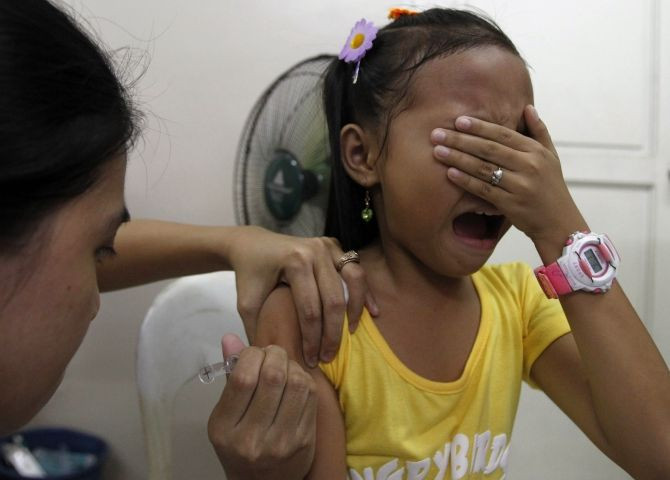Debunked Autism Risk Decreased Number of Vaccinations

While the fear of vaccinations increasing the risk of autism proved pretty bogus, it still had some far-reaching effects. Childhood vaccinations decreased in response to the fears surrounding autism risks.
The autism and vaccination scare started back in 1998 with a now retracted study published in The Lancet which linked the measles, mumps and rubella vaccine (MMR) with possibly causing autism. With reports of evidence tampering, undeclared conflicts of interest and the stripping of lead author Andrew Wakefield his medical license due to serious professional misconduct, The Lancet retracted the study in 2010 and the BMJ declared the study to be fraudulent.
Despite there being no scientific evidence supporting any link between MMR vaccination and autism, this belief is still widespread. Jenny McCarthy, whose son is autistic, is the celebrity figurehead for this belief.
With this widespread, albeit unfounded, belief researchers wanted to determine how this fear affected not only MMR vaccinations but other common childhood vaccinations. The study was led by Lenisa Chang, PhD, from the Carl H. Linder College of Business at the University of Cincinnati.
Researchers look at data from the National Immunization Survey that was published between 1995 and 2006 to see if the fears had any effect on immunizations. Right after the published papers in The Lancet, education levels played a role in a child's vaccination. Children of college-educated mothers were less likely to have been vaccinated than non-college educated mothers.
Surprisingly, once the papers were retraced and more studies refuted the association between vaccinations and autism, there continued to be a difference between college-educated and non-college educated mothers when it came to getting their child vaccinated. More children of college-educated mothers were not vaccinated than children of non-college educated mothers, with noticeable spikes in 2003, 2004 and 2006.
While the controversy centered on the MMR vaccination, the autism fear affected other vaccinations as well including for polio and a smaller impact on diphtheria, tetanus and pertussis (DTP) vaccinations. The researchers describe this decrease as part of the general concerns for all vaccinations that spread from the MMR concerns although there may have been other factors in play for why polio and DTP vaccinations decreased during that time period.
The study shows how a scare can have far-reaching consequences. Despite the widespread refutation of any link between autism and vaccinations, the belief persists. Most recently, in April 2012 on Fox News, Donald Trump warned against vaccinations because it causes autism.
The study will be presented at the 4th Biennial Conference of the American Society of Health Economics and all data should be considered preliminary until published in a peer-reviewed journal.
Published by Medicaldaily.com



























